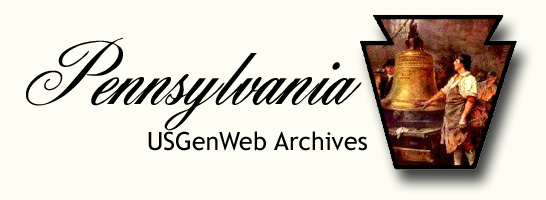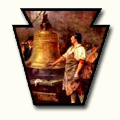| |
A History of Pittsburg and Western Pennsylvania Troops in the War
By John V. Hanlon (Copyright 1919 by The Pittsburg Press)
Chapter XI
(The Pittsburg Press, Sunday, March 16, 1919, pages 75-76)
Names in this chapter: O’Neil, McGinnis, Herrman, Cavanaugh, Vaughan, Lynch,
Fitzgerald, Fredenberg, Shearer, McCoy, Kraus, Harris, Miller, Phelps, Gehner,
Ord, Otton Fisher, Ott, Epley, Duff, Wyko, Fletcher, Hargrave, Henderson, Kelly,
Riley, Murphy, Amuer, Nixon, Matthews, Paris, Koch, Davis, Andrews, Carson,
McKenney, Best, Reitf, Reisker, Cain, Earl, Dunmeyer, Middowar, Beck, Lauff,
Siebert, McCune, Medder, Smith, Beach, Wilhard, Vail, Best, Lohr, Washabaugh,
Schorts, Saplio
The Fighting along the Vesle, in which our Pittsburg and Western Pennsylvania
soldiers of the Twenty-eighth division played a major part, called for many
hazardous undertakings and as a result there were hundreds of instances of
individual bravery and daring. Our boys frequently plead with their officers to
be permitted to take these extremely dangerous assignments and it seemed as if
they had banished from their minds all thought of their own welfare and only
desired to carry forward the Starry Banner and make a finish to the Hun as
quickly and thoroughly as possible.
COUNTLESS DEEDS OF BRAVERY WERE PERFORMED BY THE PITTSBURG AND PENNSYLVANIA
DOUGHBOYS IN THE ATTACK ON FISMETTE, IN FACT PRACTICALLY EVERY MEMBER OF THE
TWENTY-EIGHTH DIVISION WHO PARTICIPATED IN THIS MEMORABLE BATTLE WAS CALLED UPON
SOME TIME OR ANOTHER TO DO EXCEEDINGLY HAZARDOUS TASKS, BUT NO MAN FLINCHED NOR
ATTEMPTED TO TRANSFER THE RISK TO THE SHOULDERS OF A COMRADE. IT WAS A CASE OF
FIGHT EVERY MINUTE UNDER A VERITABLE DELUGE OF EVERY SORT OF DEATH-DEALING
DEVICE THE HUN HAD TO OFFER, AND SOME OF THE CONTRIVANCES WERE AS DEVIL- [sic]
While the ambulanciers were wailing in the shelter of
the building in Fismett to load the wounded into ambulances the Huns continued
to pour forth their hate on that brave band of Pennsylvanians, and it seemed as
if they were determined to prevent the evacuation of those wounded men, if it
took every shell in their possession to accomplish the nefarious task. But the
doughboys kept at their posts with utter disregard for the death missiles
falling all around them. Private O’Neil went back to the river to ascertain if
the bridge was still standing, and while he was standing on the brow of the hill
gazing down he happened to think of a cache of medical supplies in the side of
the hill. He calmly walked to the spot, despite the fact that he was the target
for many enemy gunners, secured the supplies and carried them back to the
buildings where the wounded were being sheltered. Officers who witnessed the
feat through field glasses from the far side of the Vesle have since declared
that it was one of the most daring and fearless pieces of work of which they
have knowledge.
When O’Neil brought back the supplies he reported that
the bridge was still standing, and at 3 o’clock in the morning they loaded the
first ambulance and started on its perilous journey to the other side of the
Vesle. Capt. McGinnis went along, Within a few minutes another ambulance was
loaded and followed. At the same time O’Neil had been sent down to take another
look at the bridge and he had just arrived and the first two ambulances were
just safely across and leaving the bridge at its other end when a big shell
landed right in the middle of the structure and broke it in two.
O’Neil hurried back to his comrades to prevent any more
ambulances from starting out until the bridge had been repairs. Just as he
arrived, a big shell burst directly in front of the dressing station and several
of the men were buried under an avalanche of earth at the entrance to the
cellar. The story is told of how one doughboy in an ambulance, presumably too
severely wounded to move, beat an unwounded man into the cellar after the shell
burst. Several of the men were wounded by flying pieces of shrapnel and some of
the wounded also received new wounds. One of the ambulances had all four tires
punctured and its top punctured in hundreds of places.
After this happened the patients who had been loaded
into the ambulances were carried back into the cellar to await the time when the
enemy should decide to take a breathing spell. By 7 o’clock the bridge had again
been repairs, and two more ambulances got away, but when they reached the river
front they found the bridge again a mass of ruins and had to return to the
shelter.
RUSH FOR THE RIVER
Efforts to get the wounded men out of Fismette and
across the bridge continued, but without success because of the heavy
bombardment kept up by the enemy. The next day at 4 p.m., there was a lull in
the fire and two more of the ambulances made a break for the river. They raced
out of the town and across the bridge, but arrived on the other side just in the
nick of time to escape being thrown into the river. A big shell made a direct
hit on the structure and broke it in twain.
This time the bridge was damaged beyond the hope of any quick repair so the
ambulanciers prepared to ford the river on foot and carry the wounded on
litters. This was dangerous work with the enemy fire sweeping the stream, but
our boys never hesitated for a minute. There never seemed to be a task which
they would not undertake in their determination to make an end to the Hun. The
Fismette affair had become so desperate by this time and the fighting had been
so severe that our boys were in a mood where they would have rushed into
anything. They were not in the best of humor because of being held up by the
staunch defense which the enemy was putting up.
In order to get the wounded across the river by the
wading it was necessary to organize some sort of defense to keep down as much as
possible the enemy task while the ambulance men were engaged in their perilous
work. In organizing this defense First Sergt. Thomas J. Cavanaugh, of Pittsburg,
a member of Co. D, One Hundred and Eleventh infantry, distinguished himself in
such a manner as to be cited in orders and likewise to receive the distinguished
service cross.
CAVANAUGH’S DARING WORK

Sergt. Cavanaugh performed some wonderful work in this
instance and by his courage and daring did much to assist in getting those
wounded comrades back across the river to a hospital. He took a small force of
his men and captured a small building on the outskirts of the village as a
preliminary to the scheme of covering the evacuation of the wounded. Then taking
a position on a street intersection, where, by stepping around the corner he was
protected from the snipers and machine gun fire and by going around to the other
side, he was a target for the machine gun fire sweeping the street down which
the ambulance men had to rush with their cars to the river’s edge. Cavanaugh
took awful chances that day, for when the ambulance men were ready to move he
would step out into the street and if the Germans were not firing heavily at
that moment he would beckon to the ambulanciers that it was time to make a dash.
He was wounded by shrapnel but refused to go to the rear until he collapsed and
was carried off a couple of hours later. The next day, after having his wounds
dressed he insisted on resuming his post and acting as the human target for the
benefit of the wounded and ambulance men.
When the ambulance men got to the river they calmly
unloaded the wounded and raising the litters above their heads they waded
through the water to the other side and all this time the machine gun bullets
and shrapnel were churning the waters about them. On the far side the ambulance
men waiting to receive the wounded and rush them to field hospitals backed their
cars almost to the water’s edge oblivious to the death-dealing missles [sic]
falling like rain about them. They watched closely every move of their comrades
in the water and called out advice as to the best way to proceed. In this way
our wounded Pennsylvanians were removed to safety right under the noses of the
enemy.
CAPT. LYNCH KILLED
But Sergt. Cavanaugh was not the only man who exposed
himself to the Boche fire on corners to assist in this evacuation of the wounded
and it is but right that mention should be made of Capt. Edmund W. Lynch, of
Chester, commander of Co. B, One Hundred and Eleventh, and Lieut. Edward S.
Fitzgerald of New York city. Capt. Lynch was killed a short time later. Both
these officers took position on street corners during this period while the
wounded were taken out and officiated as human targets.
And all this time the fight for Fismette went on
ceaselessly. Many were the acts of gallantry and daring performed but for the
most part the work all called for exceptional daring and so every man shared in
it. The unusual acts were noticed in certain instances but most of them will
probably never be known as they were either unnoticed or forgotten during those
strenuous days.
The One Hundred and Eleventh was relieved about this
time by the One Hundred and Ninth and then, on Aug. 17, the One Hundred and
Twelfth went back into Fismette and rotating by battalions assisted them in
holding the line.
Lieut. Milton W. Fredenburg of Ridgway, an officer of
Co. D, One Hundred and Twelfth, had some ticklish work to do for he was ordered
to lead a party of machine gunners filtering through the German lines at night.
They worked like Indians, a man slipping through here and another there. Then by
an arrangement made previously they all assembled in a woods at the rear of the
German line. Next day when the fighting became furious and the Boche commenced
to waver, the lieutenant and his little band threw consternation into the enemy
by sending a hail of machine gun bullets into his rear. The Germans in this
section were sure they were being surrounded and broke and fled. The ground was
strewn with dead Huns as the result of this bit of work as our boys were able to
get them coming and going.
MANY WADE STREAM
The bridges were still down and in order to get more
men across the river, Lieut. Ripley L. Shearer of Harrisburg, with men of Co. G,
One Hundred and Twelfth, had to cross the river at a place where it was
unusually deep. Some of the shorter men of his command were obliged to either
swim or be supported by tall comrades in order to effect the crossing. They had
the center of this advance and captured a building which had been a tannery and
which had been transformed by the Germans into a stronghold. Lieut. Shearer and
his men received high praise for this work as it was exceptionally hard and
hazardous. It was likewise costly to our men in killed and wounded.

Capt. Fred McCoy
Co. M of the One Hundred and Twelfth, commanded by
Capt. Fred L. McCoy of Grove City, forgot its way down the river bank in one of
the assaults and captured an old stone mansion held as a defense point by the
Germans and from its stout stone walls they had been able to pour an effective
fire into the Americans. In capturing this stronghold our boys took about 30
machine guns, large quantities of supplies and many prisoners as the defenders
were caught like rats in a trap.
East of the tannery which had been captures by men from Co. G, was where Capt.
Lucius M. Phelps of Erie, commander of Co. G, and Capt. Harry F. Miller of
Meadville, commanding Co. B, led other detachments in a brilliant advance and
were able to turn their guns on the enemy clinging desperately to the northern
fringe of the town.
Among the instances of individual heroism recorded
around Fismette during these days of carnage and turmoil were the following:
HEROIC DEEDS MENTIONED

Sergt. Ralph E. Ord of Dravosburg, showed extraordinary
bravery by his skill in handing [sic] his platoon, in addition to rescuing
several wounded men and dragging them to places of safety away from the shot and
shell swept area.

Private Michael Fisher of Pittsburg was a runner who
crossed the bridge many times under machine gun fire and while the structure was
also under a deluge of three-inch shells. Another exploit of Fisher’s was to
conduct 25 wounded men, one at a time across this fire-swept bridge. His
comrades declared that he seemed to bear a charmed life.
Private Fred Ott, another runner in the same outfit
carried a message between Fismes and Fismette for five days and when the bridge
was down, which was very frequently the case, he plunged into the river and
either swan or waded across. He would appear at headquarters with his clothes
dripping wet. Frank Prosta was another runner from this vicinity who performed
many daring exploits.
Our Pennsylvanians were using some French trained dogs
as couriers at times but frequently the animals would fail to get through and as
wire communications had been cut it was necessary to call for volunteers to
carry the messages. It is needless to say that there were many more doughboys
offering for this hazardous service than could be used.

RUNNERS FACE DEATH
William Duff of Pittsburg, as mechanic; Maurice J.
Hargrave, Pittsburg and Private Paul E. Henderson of Sagertown, were on duty as
runners from Aug. 9 to 13 carrying messages across the bridge to Fismette. On
Aug. 13 Duff and Henderson were in Fismette when the Germans made a violent
attack and it was reported that our men were surrounded. It was necessary to get
a message across the river to our supports on the Fismes side and as it was
absolutely necessary that the message should get through two copies were made
and Duff and Henderson having begged for the opportunity were sent away. Both
got through and in the afternoon Duff returned with a load of much needed
ammunition. Maj. Harry J. Kelly says they saved the day for our boys were
finally able to beat off the German attack.
Hargrave made about 12 trips across the river and back. Privates Albert R.
Murphy, William J. Nixon, Philadelphia; George B. Matthews, Ardmore; Albert A
Paris, Pittsburg; James F. Koch, Conshocken, Albert A. Davis and Robert N.
Andrews, Pittsburg, were first aid workers who distinguished themselves, making
litters out of twigs. Private Lester Carson of Pittsburg, after a runner had
been shot down volunteered to carry a duplicate message over the same route and
got through.

J.R. McKenney of Pittsburg, took out a patrol in the
face of severe machine gun fire and snipers of the enemy. He was for 12 hours
without food. Corp. Charles Reitf of Pittsburg showed ardor and leadership
unexcelled for he was one of the first men to force his way into a stone house
occupied by Germans with machine guns, which house dominated our flank. He
afterwards took charge of the defense of this house from which seven German
snipers were killed. Sergt. Raymond C. Reisker, of Lebanon, although not
required to do so, dressed the wounds of 16 men, being constantly under fire at
the time, below the slim protection of a wooden bridge.

CAPT. CAIN LEADS CHARGE
Capt. Robert S. Cain, of Pittsburg, armed himself with
a rifle and led the men at one exposed ridge. In one place of the battle he once
found his company faced by 1,000 Germans, the remnants of three enemy regiments.
He defeated them and captured a half dozen German machine guns.

Sergt. John W. Thompson, of Pittsburg, distinguished
himself by conspicuous bravery, leading a patrol against the enemy machine gun
nest of 10 guns in the face of a direct fire, they captured two of the guns,
then taught the men to use them and turned them against the Germans. His patrol
had much of its equipment shot off, his own rifle being shot through by one
bullet. He killed numerous snipers and his constant aggressiveness inspired the
entire regiment.
Sergt. John Howard Earl, of Doylestown, not only took
command and led a platoon to victory, but himself dressed a major portion of the
wounded.
Hospital men who showed conspicuous gallantry were
Privates Carl J. Dunmeyer, of Johnstown, Gerald Middowar, of Waynesburg, Ray
Beck, Philadelphia, and Emil M. Lauff, Philadelphia.
Stretcher bearers who worked with special courage were
Sergt. T. Siebert, J. McCune, Blairsville, Corp. Clair Medder, Zelienople,
Privates Russel Smith, Pittsburgh, James Beach, Du Bois, Edward Wilharn,
Edgewood Park, Walter Vail, Punxsutawney, George Best, Pittsburg, William Lohr,
Ligonier, Raymond Washabaugh, Guy Schorts, Yathboro and Thomas Smith,
Washington.

Private Sam Saplio of Pittsburg, showed great heroism,
being almost impossible to keep him from going alone into the German lines after
the snipers and machine guns, so great was his enthusiasm, not withstanding that
his canteen and part of his equipment had been shot off him.
Sergt. Robert C. Herrman, of Pittsburg, took charge of
the firing line when all the officers had been killed or wounded.
Sergt. Richard Vaughan, Royersford, was conspicuous by
his disregard of danger and leadership.
PITTSBURGERS PRAISED
Mechanic Robert A. Kraus, of Pittsburg, and Privates
William L. Harris and Joseph A. Gehner, of Pittsburg, won the plaudits of their
comrades for their work in carrying the wounded back from the firing line under
a heavy fire, while Bugler Roy Epley of Jeannette, and Private Carl Otto of
Fremont City, without sleep or food for 72 hours, carried messages that were
always delivered.

Others who showed extraordinary capacity and bravery
near Fismette were Lieut. Lee G. Fletcher and Godfrey N. Wyko, Sergt. James
Mastrovitch, Pittsburg; Sergt. Alfred Stevenson, Linwood; Sergt. Edwin McBeth,
Pittsburg; Corp. R. R. Riley, Chester; Private P. Amuer, Dravosburg.
During all the time this fighting was under way along
the front lines the Pennsylvania artillery stationed in the hills south of
Fismes had been undergoing a thorough drenching of gas and shell from the German
batteries but our artillerymen gave two shells for every one the Boche sent
over. At one time just as a battery was geared up to move into another position
a big shell dropped right in front of the lead team of one of the guns. The
horses commenced to prance and tremble and it was an ideal moment for a stampede
but the doughboys sat their plunging steeds as if on parade. By their coolness
they prevented any further damage and won high praise from their commanding
officers.
GUNNERS SHOW GRIT
Two men were killed and three wounded severely. Two of
the horses were blown to bits, but the battery went on to its position. The
wheel driver hurried to a dressing station to seek aid for the wounded and then
sought out the ammunition dump, obtained a supply of shells and went on the
gallop to the battery position to deliver it. When he had completed his work he
called to one of his comrades and asked him to help dress a wound in the leg. He
had a bad gash from a shell fragment, but he had attended the other wounded and
supplied his battery with ammunition before thinking of his own hurt. Such was
the stuff of which our artillerymen were made.
Members of the headquarters company of the artillery
regiments were called upon to maintain communications constantly and they strung
telephone and telegraph wires in the face of the deadliest enemy fire and in
almost inaccessible places. They never even faltered in the work for it was
imperative that these communications be kept working at all times. For them to
fail might have endangered the lives of the infantry out in front seeking to
drive the Boche from Fismette. Men would fall at times like wheat before the
scythe but always there were others to promptly step into their places. The
signal detachments were also continually busy at this work of maintaining
communications and worked day and night, frequently without food or water for
many hours.


|
|















